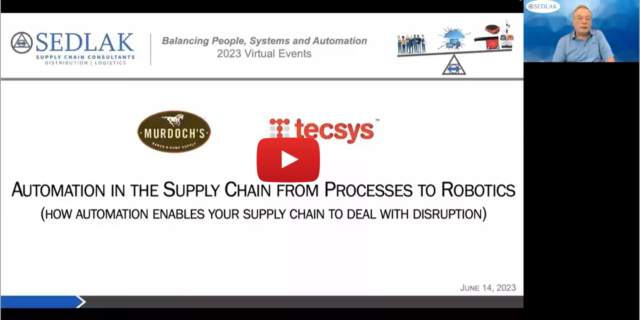Dennis Heppner Discusses Last Mile Delivery Collaboration with MHI Solutions
December 18, 2017 Topics: Media, NewsNew entrants in the last mile market in the U.S. are seeking strategic partnerships to compete in this fast-paced logistics arena. Additionally, well established carriers like UPS, Amazon, and J.B. Hunt are blurring the lines of carrier roles to take advantage of opportunities in the last-mile delivery space. Manager Dennis Heppner discusses these trends with MHI Solutions:
[From MHI Solutions]
When it comes to last mile delivery, partnerships are helping organizations of all sizes compete.
[Sedlak Manager Dennis] Heppner speaks of partnerships in terms of practicalities. He aims to work with those who are able to communicate in ways that others on all sides are able to understand. He looks for table stakes such as services provided, track record, geographical coverage, number of drivers and equipment in place.
“But really, with so much of what we do, whether you’re talking about final mile delivery or anything else across the supply chain space, there’s the level of sophistication of their technology,” he said. “It’s no longer a ‘nice to have.'” Speed of transaction, quality of data capture and accessibility of that data are increasingly important. It won’t be too long, he said, when the data isn’t about what happened last month and how effective it was, but more about the last hour.
Heppner…has been seeing collaborations, as well as a “blurring of the lines” of who does what – and how. The definitions of parcel carrier, truckload carrier, courier and the like are no longer as clearly defined.
“Many years ago, UPS and FedEx got into the LTL (less than truckload shipping) space because they saw opportunity,” he said. “Today, in what a lot of people think of as the final mile, meaning local courier or some other kind of white-glove- service, there are going to be players getting into that space that you wouldn’t expect. We know J.B. Hunt. Most people think of them as a truckload carrier, and have no idea all of the specialized carriage that they do. They do dedicated. They do final mile. They do the white-glove kind of stuff. That’s natural; if somebody sees the opportunity, they’re going to get into it. We’ll see more of that blurring.”
There are, he noted, still constraints, and still challenges to be overcome. And for the forseeable future, differentiation still will depend on breadth of services offered – and the technology to back it up.
“What the different partners along the supply chain are expecting of each other is becoming, or has become, the direct result of what we expect as individual consumers,” he said. “In some respects, it’s good. It kind of forces the Darwinian theory. It forces the weaker parties out there to go away, and makes the strong ones even better.”







